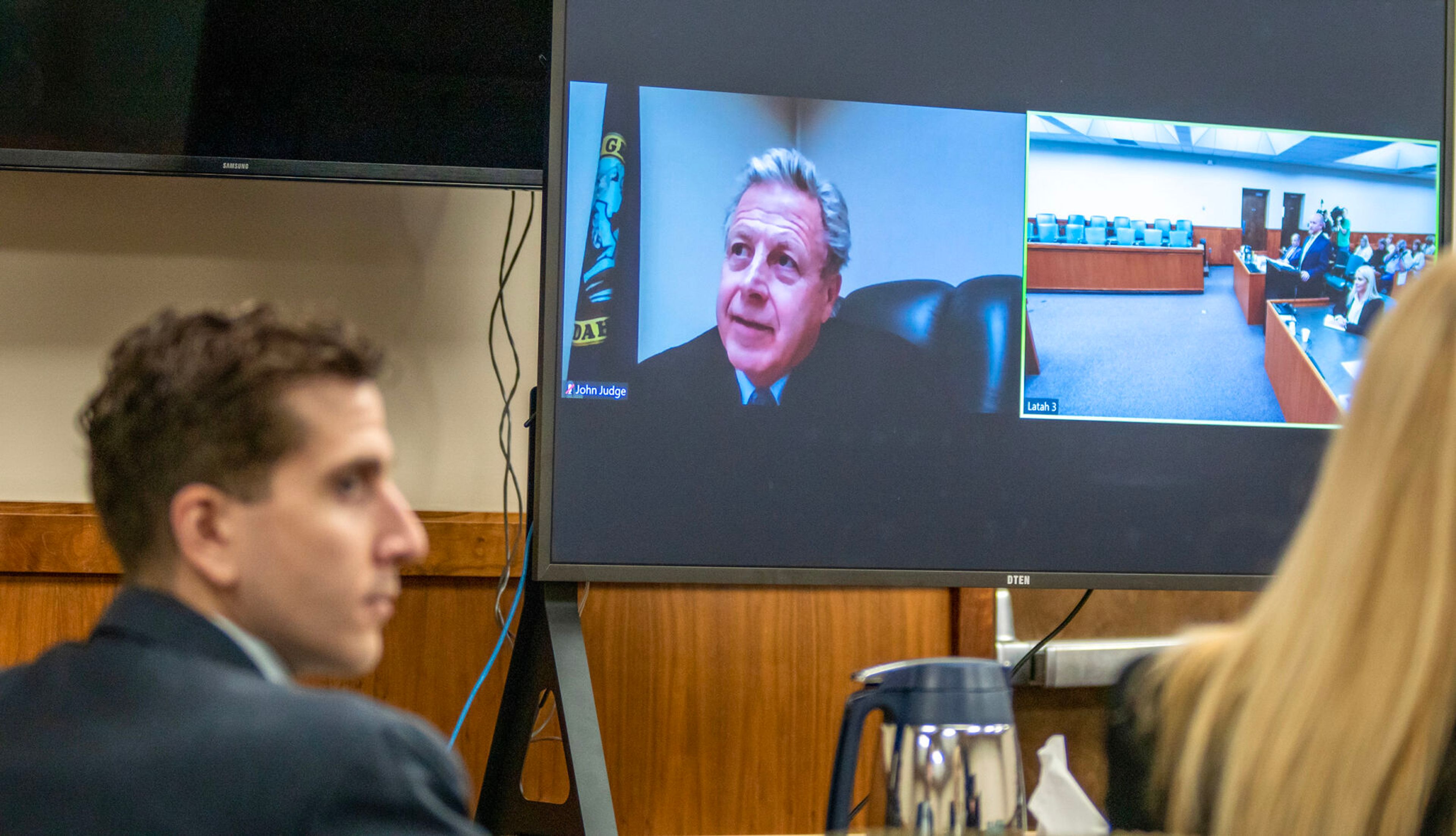Idaho Supreme Court: Gag order in Kohberger case still stands
Media’s petition to vacate Kohberger case gag order dismissed; high court says media should have first approached the magistrate court
The Idaho Supreme Court decided Monday to dismiss a petition to vacate a Latah County Court’s gag order regarding the Moscow quadruple homicide case.
A coalition of media companies, including the Lewiston Tribune and the Moscow-Pullman Daily News, went to the Idaho Supreme Court to push back against a gag order signed by Latah County Magistrate Judge Megan Marshall that prohibits law enforcement and attorneys from speaking publicly about the case of suspect Bryan Kohberger.
Kohberger faces four counts of first-degree murder and one count of burglary in the November stabbing deaths of University of Idaho students Kaylee Goncalves, Madison Mogen, Xana Kernodle and Ethan Chapin. Kohberger remains in Latah County Jail as he awaits his June 26 preliminary hearing.
The gag order was put in place in January as a response to the case’s high-profile nature and the desire to protect Kohberger’s right to a fair trial.
“There is balance between protecting the right to fair trial for all parties involved and the right to free expression as afforded under both the United States and Idaho Constitution,” the amended gag order stated.
The media coalition petitioned the Idaho Supreme Court to seek a writ of mandamus or a writ of prohibition to vacate Marshall’s order.
The media coalition argued the gag order violates the media’s First Amendment rights concerning the freedom of the press. It also argued there was no history of extrajudicial statements that could prejudice Kohberger’s right to a fair trial.
The Supreme Court agreed that the coalition’s argument about the First Amendment has legal standing.
“Based on the record, we conclude that for the purpose of establishing standing, Petitioners have sufficiently alleged an injury in the form of their diminished ability to receive speech and effectively gather news,” the court’s opinion stated.
However, the Supreme Court stated that the media coalition should have first approached the magistrate court with its concerns before petitioning the Supreme Court.
The Supreme Court stated that the petitioners failed to show that bringing its argument to the magistrate court first “would not provide an adequate, plain, or speedy avenue to redress their grievances.”
It further stated that granting the coalition’s request to vacate the gag order would “essentially invite the media and others to bring a direct challenge to this Court any time a trial judge issues a nondissemination order or admonishes the attorneys not to discuss the case with the media—without first attempting to resolve the issue before the court issuing the order.”
Kuipers can be reached at akuipers@dnews.com.






